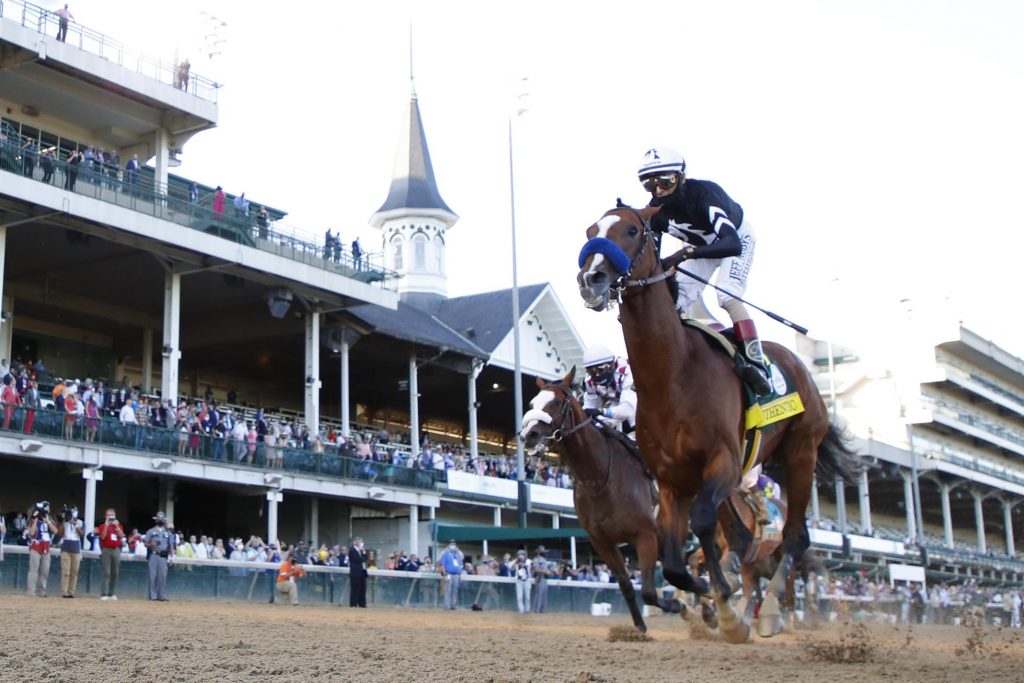Over the past few years, companies have sprung up offering “micro-shares” in everything from commercial real estate to sports cars and fine art. For some buyers, fractional investment is a strategic money play. For most, however, it’s a taste of the high life.
For the more than 4,600 investors who bought $206 shares in the race horse Authentic—among them gold-medal skier Bode Miller and Los Angeles Dodgers pitcher Walker Buehler—the purchase became the ultimate brag: They were co-owners of the thoroughbred that won the 2020 Kentucky Derby.
The company behind that deal, Experiential Squared, announced Thursday that it had raised $7 million in new capital to expand its MyRacehorse product with lead investor 1/ST Racing & Gaming and, eventually, to chase its ambitions beyond the racetrack.
Founder and CEO Michael Behrens declined to disclose Experiential Squared’s total value but says 1/ST will be “significant partners,” likening the raise to a Series A. The company has $50 million in total sales to date, and in the U.S. and Australia, the company’s two biggest markets, it says it operates profitably.
“I don’t need to use this money to subsidize operations or things of that nature,” Behrens tells Forbes. “So I’m going to spend most of the energy and the time working with 1/ST to really reimagine what fractional ownership can be.”
Behrens was the first in American horse racing to land a certification with the Securities and Exchange Commission to sell up to $75 million in securities through crowdfunding. With the approval, and the help of billionaire cofounder B. Wayne Hughes, Behrens built MyRacehorse into a platform offering securitized ownership shares in horses and the perks that come with it—access to the trainers and jockeys and a lottery system to award trips to the paddock or seats in the owner’s box—to more than 50,000 active owners.
Those fractional owners, for the most part, aren’t investing to get rich. Tim Derdenger, an associate professor of marketing and strategy at Carnegie Mellon, says that for people who buy micro-shares of horses—or shares of a fledgling golf or tennis pro’s future earnings—this is “play money.” The investment is risky, and the returns are relatively modest, but the feeling of being involved makes the experience worthwhile.
“This is a passion play,” Derdenger says. Investors may “have some embedded emotional connection to that sport, and this is a way for them to actually remain connected to that sport.”
Behrens agrees that most MyRacehorse users are in it for the “pride of the asset” rather than the payoff. A former chief marketing officer at online mattress brand Casper, he says the platform can be a great marketing tool both for the sport and for potential sponsors who want to reach its highly engaged audience. He says he’ll use the new capital to expand the platform’s content offerings around the ownership experience.
And he’s not stopping there. By early 2024, Behrens says, the company will have a presence in a sport other than horse racing, citing preliminary conversations he’s had with Nascar. Unlike the public ownership of the NFL’s Green Bay Packers, whose shares are mostly a novelty item, Experiential Squared would offer the benefits of true ownership that the company has tested in horse racing.
Derdenger is skeptical of this development. From an investment standpoint, a more mature asset such as a Nascar team is unlikely to provide as much upside, turning the platform into essentially a fan club for premium experiences.
“When you’re putting money where there isn’t a need, it’s less risky, but the return isn’t as great,” Derdenger says. “It’s almost this elite entry point into engaging these super-users, and I just don’t know how valuable that is.”
For other major sports, Experiential Squared’s current model—purchasing each horse through a line of credit and selling it individually to users through a securitized LLC—would simply not work because its current class of SEC regulation requires a controlling interest in each asset it offers, and the price tag for major sports franchises has risen into the billions.
Long term, Behrens says, part of the new capital will be used to build out and get regulatory approvals for a first-of-its-kind online marketplace so the company wouldn’t need to own the assets at all. Instead, the platform would offer a secure place for buyers and sellers across any sport to interact, pocketing a brokerage fee for each transaction.
“Obviously I love MyRacehorse, and I’m a fan of thoroughbred racing,” Behrens says. “What I’m more excited about is just democratizing ownership overall, in all types of asset classes.”

